analysis CNA Insider
Why the West fears massive job losses because of China’s clean tech prowess
European and American leaders have accused Beijing of violating market principles in the electric vehicle, solar panel and battery sectors. The programme When Titans Clash finds out if another China trade shock is on the cards.
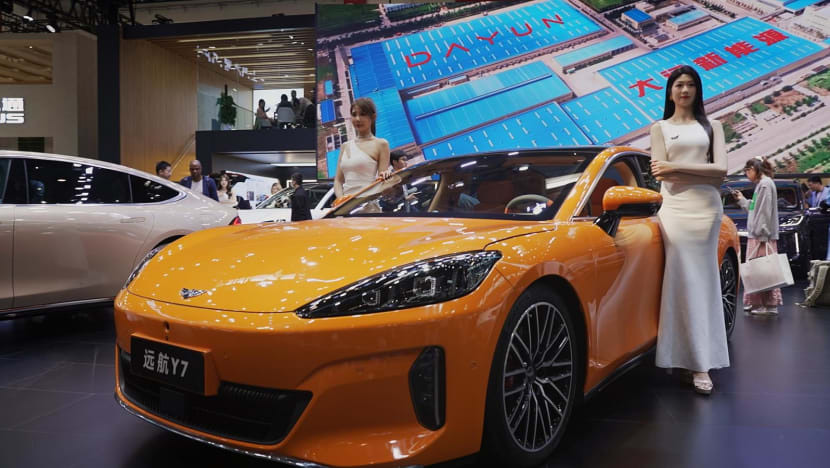

This audio is generated by an AI tool.
SINGAPORE: In recent weeks, leaders of the United States, France, Germany and other G7 countries have sounded the alarm bells about overcapacity in the Chinese economy in three areas: electric vehicles (EVs), solar panels and batteries.
In response, Chinese President Xi Jinping says overcapacity does not exist. What is at stake for China and the West?
The European auto industry is facing pressure from China’s EVs. While many consumers in Europe are buying EVs, it is Chinese brands that are gaining traction with their features and lower retail prices.
At the same time, several car factories have shut in Europe, and thousands of job cuts have been announced. This includes the following:
• In February last year, car maker Ford Motor said it would axe 3,800 jobs in Europe.
• Last June, Swedish car parts manufacturer Autoliv said it would cut 8,000 jobs, mainly in Europe.
• In October, Germany’s Volkswagen said it would cut 2,000 jobs in its software unit, Cariad.
• In November, French tyre maker Michelin said it would cease operations at three sites in Germany by the end of next year, affecting more than 1,500 jobs.
• This January, automotive supplier Bosch said it would cut 1,200 jobs in its software development division by the end of 2026.
• In March, car maker Stellantis confirmed it was signing deals on at least 2,500 voluntary layoffs in Italy. This, after it announced last June its plans to close a 40-year-old plant in Austria, impacting 300 jobs.
WATCH: Is China’s high-tech ‘overproduction’ killing jobs in the West? (46:48)
“The auto industry is a huge part of the European economy,” notes Rory Green, chief China economist and head of Asia research at GlobalData TS Lombard.
The industry’s turnover is about 7 per cent of the European Union’s gross domestic product. It employs, directly and indirectly, some 13 million people, or about 7 per cent of total EU employment.
“Also, psychologically, it’s a big part of the history of industrial development within Europe,” adds Green. “And they’re quite rightly worried (about) Chinese competition both within Europe and globally.”
It is in this context that we can understand why French President Emmanuel Macron, German Chancellor Olaf Scholz and European Commission President Ursula von der Leyen raised the overcapacity issue in their meetings with Xi in the last two months.
LARGER CHINA SHOCK THAN BEFORE?
CNA documented the effects of the first China trade shock, in the US, in the first season of When Titans Clash in 2021.
A landmark Massachusetts Institute of Technology study attributed nearly a million manufacturing job losses, and 2.4 million job losses in total, between 1999 and 2011 to competition from China, which entered the World Trade Organisation in 2001.
Of course, a wave of factories moved to other low-cost countries too, and automation played a part in the downsizing of America’s manufacturing industry, which lost close to six million jobs.
This led to all sorts of social problems, from drug abuse to depression. And in 2016, then presidential candidate Donald Trump focused on the China shock theory in his election campaign, saying little about automation or income redistribution.
He won that election. And on his presidential campaign trail this year, the China factor features again.
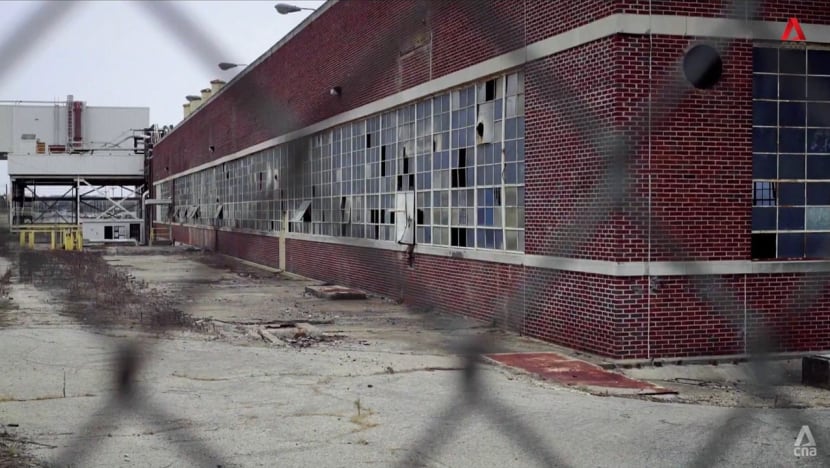
As US President Joe Biden, Secretary of State Antony Blinken and Treasury Secretary Janet Yellen also raise the overcapacity issue, some economists warn of another impending China shock, this time in advanced manufacturing sectors.
“The second China shock could be even larger than the first,” Green says. “What we’ve got now in China is … four things. The first is a 30 per cent share of global manufacturing. The second is relatively cheap wages.
“The third, and this is key: advanced technological capacity. And then the fourth: massive, consistent, sustained state support for these sectors. The combination of those four factors is unprecedented in history.
“A second China trade shock, this time (in) advanced manufacturing … is going to put a lot of pressure now on … Europe, on Japan, on South Korea and (yet) again, pressure on … the US.”
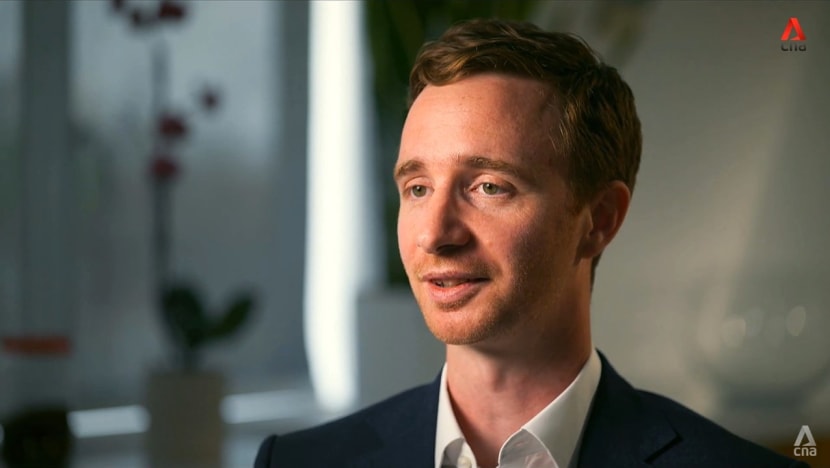
In response to China’s “overcapacity”, Biden announced new tariffs last month on Chinese imports. The White House said the measures, which include a 100 per cent tariff on electric cars from China, are intended to protect American jobs.
CHINA’S REBUTTAL
Over in China, the old growth model of property and infrastructure development no longer holds.
Beijing announced the “Made in China 2025” vision almost 10 years ago and worked towards global competitiveness in three areas of clean technology: EVs, solar panels and batteries.
With the country now facing high youth unemployment and lacklustre economic growth, these three clean tech sectors play an important role in powering its economy forward. But they face resistance arising from the overcapacity disputes.
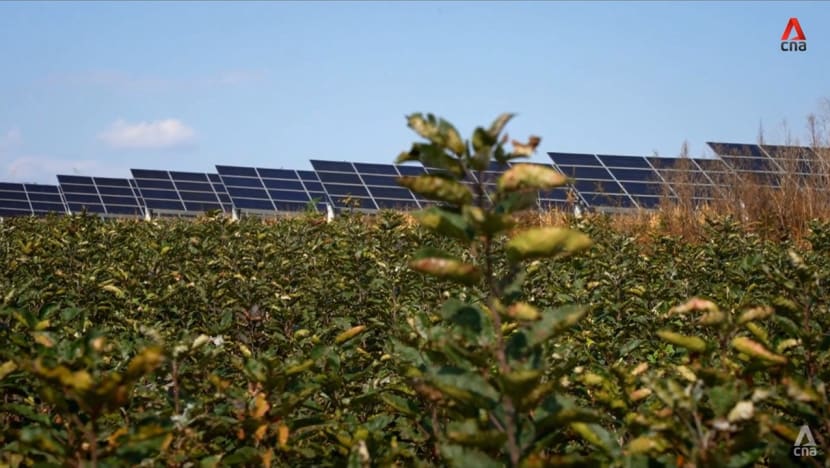
China has pushed back against the allegation of overcapacity. Chinese ambassador to the US Xie Feng said in April: “Globally, green capacity isn’t excessive but in dire scarcity. The problem now isn’t ‘overcapacity’ but overanxiety.
“Calling for (a) stronger climate response on the one hand, and erecting green trade barriers on the other, would only raise the cost for one’s own low-carbon transition and also slow down the global development of clean energy.”
There are others in China with a more pointed rebuttal.
International relations professor Wang Yiwei, the director of Renmin University of China’s Institute of International Affairs, tells CNA the overcapacity allegations are a way to stop China from moving up the manufacturing ladder.
“The automotive industries (in Europe and the US) are in a state of decline. They can’t accept the fact that China is overtaking them. So they can only blame you for ‘overcapacity’, especially during this US election year,” he says.
“It isn’t me (Europe and the US) underperforming, it’s them (China) messing around. It’s them (China) who’ve violated market principles.
Wang, who is also vice-president of the university’s Academy of Xi Jinping Thought on Socialism with Chinese Characteristics in a New Era, questions whether there really is excess in China.
“China is aiming to achieve peak carbon emissions and carbon neutrality by 2030 (and 2060 respectively). If we don’t promote electric vehicles, what else should we be doing?” he says.
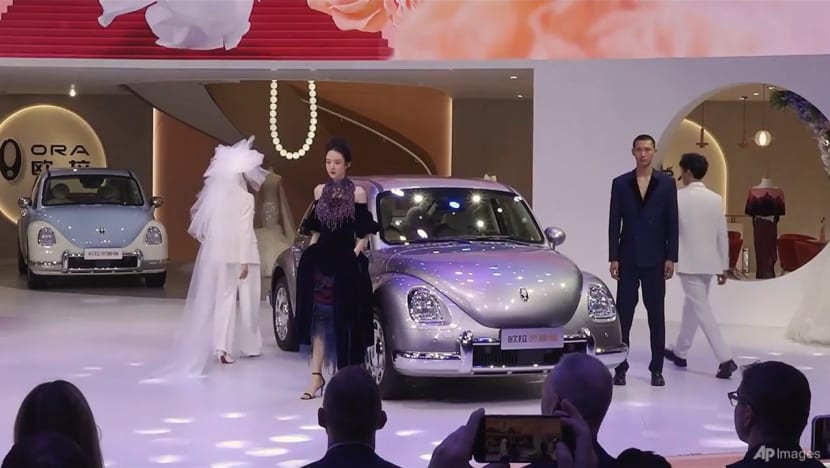
How is this tussle between China, Europe and the US unfolding? Are we witnessing the start of a trade war between Europe and China?
Our documentary, When Titans Clash — The Overcapacity Debate, addresses these issues and asks experts across the globe for their perspectives.
As Europe launches more investigations into China’s trade practices, and election rhetoric heats up in the US, I think we are entering a new phase in geopolitical rivalry.
A new set of trade disputes and rerouting of global supply chains is only just getting started.
Watch this episode of When Titans Clash here.



















